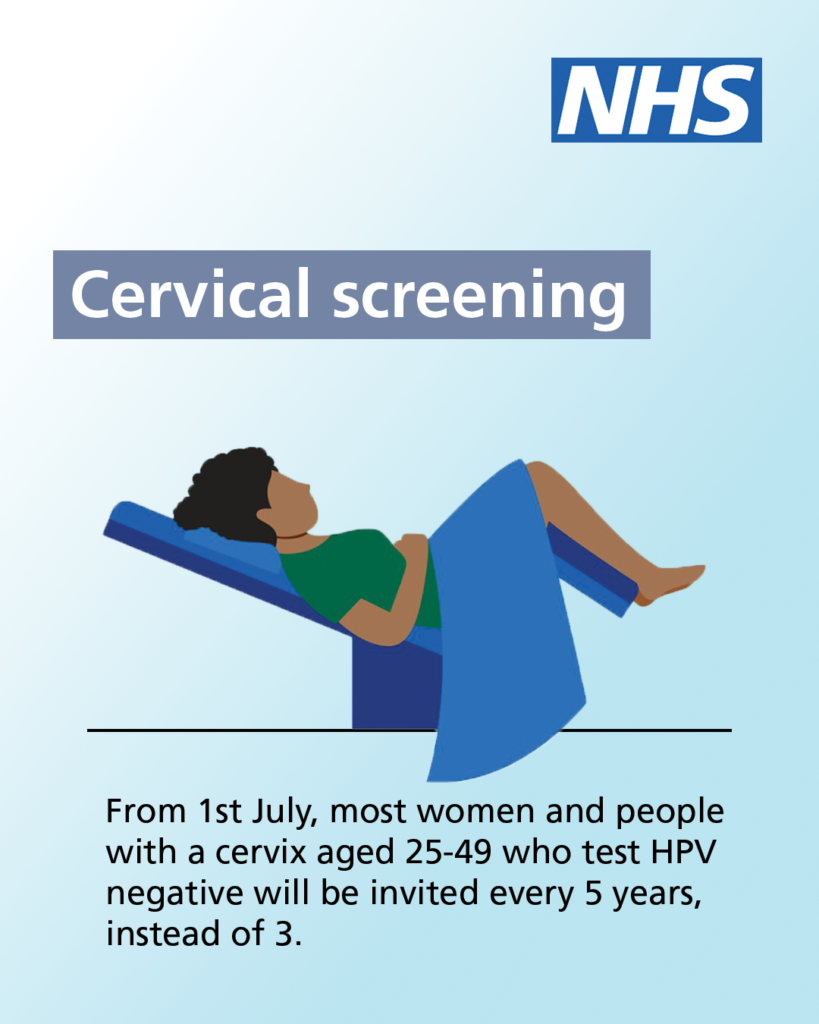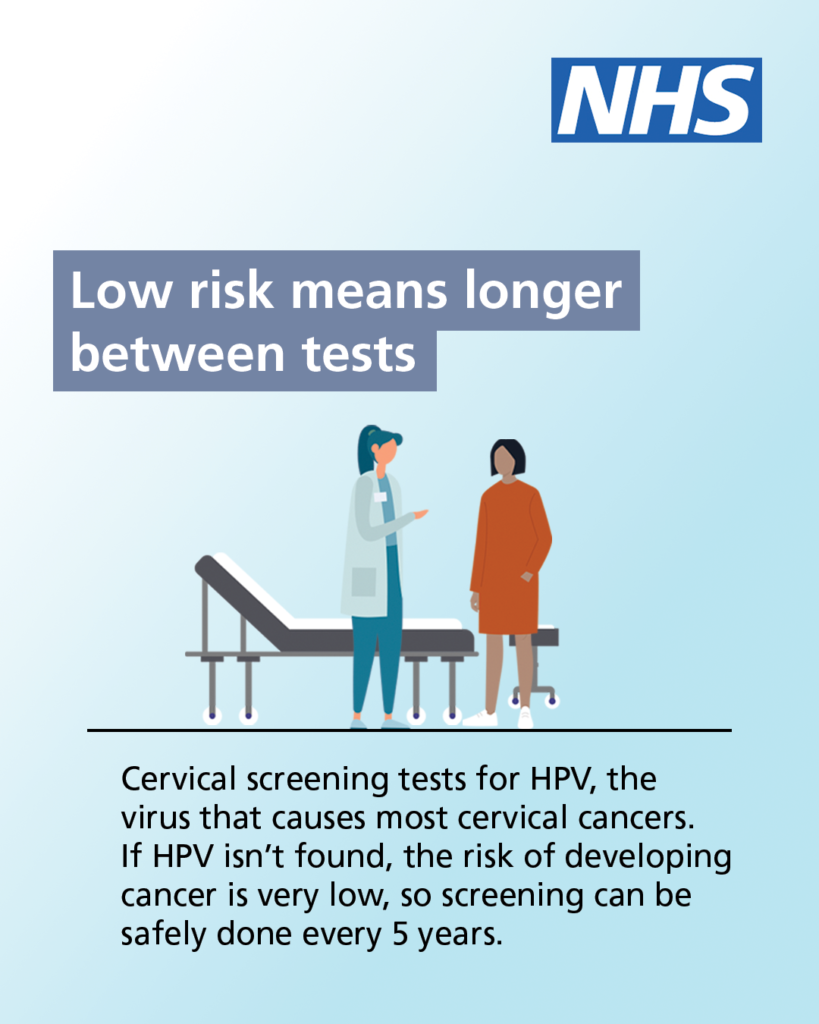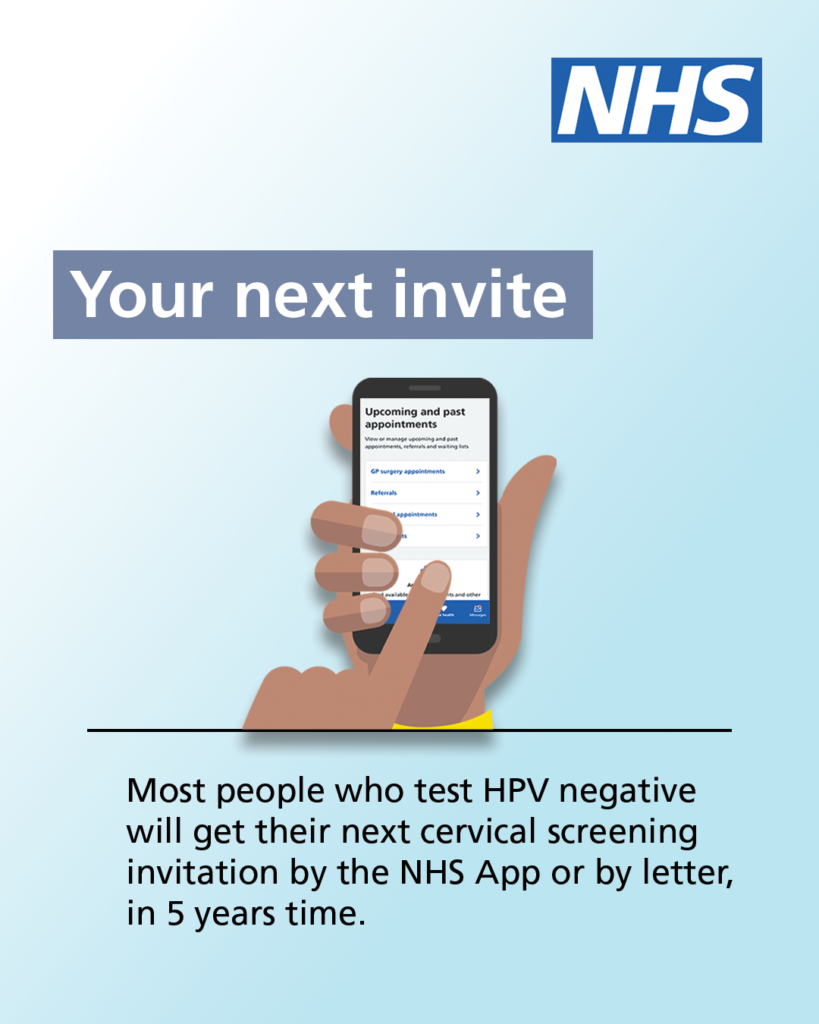The NHS Cervical Screening Programme saves thousands of lives every year by
detecting abnormal cells in the cervix that could develop into cancer, if left untreated.
The screening is sometimes known as a smear test.
How often people need to have cervical screening is changing in England from 1st July 2025.
What is changing?
At the moment, in England, women and people with a cervix aged 25-49 years are routinely invited for screening every three years.
The UK National Screening Committee (UKNSC) is now recommending that those testing negative, and with no recent history of Human Papillomavirus (HPV), won’t need to come for a cervical screening quite so often – every five years instead of every three.
If your cervical screening shows you have HPV, you may be invited for more frequent screenings to check
HPV has cleared and if not, if any cell changes have developed.



Why is it changing?
Improvements in HPV testing enables the NHS to now offer a more personalised approach to preventing cervical cancer, which means those identified as lower risk won’t need to be screened as frequently, and those at higher risk will continue to be monitored more regularly.
The Human Papillomavirus (HPV) causes nearly all cervical cancers. Since December 2019 all cervical screening samples taken in England have been tested for high-risk HPV. It is a more sensitive and accurate test than the previous method and is the best way to find out who is at higher risk of developing the cell changes that over time could lead to cervical cancer.
What is the evidence?
This change is strongly backed by robust scientific evidence. Studies have shown that if a person tests negative for HPV they are extremely unlikely to go on to develop cervical cancer within the next 10 years.
Research published by King’s College London showed that 5-yearly screening is as safe as 3-yearly; the same number of cancers will be prevented and less frequent cervical screening tests are needed.
This move brings England into line with Scotland and Wales who have introduced this change, and with women aged 50 – 64 who are already invited every 5 years.
The positive impact of the HPV vaccination is also starting to be seen, with studies in England showing that the HPV vaccine stops 90% of cervical cancer cases. The latest HPV vaccine type introduced in the UK in 2021 is predicted to further reduce cases of women’s cancer and HPV attributable deaths by 16% and 9%, compared to the previous vaccine type.
Why does screening matter?
Even if you’ve had the HPV vaccination, it’s important that you attend your cervical screening.
Cervical screening saves lives – so make sure you come forward for your screening when you’re invited, even if it was weeks, months or years ago.
If you think you are due but have not yet had an invitation, contact us.
Learn more about cancer screening